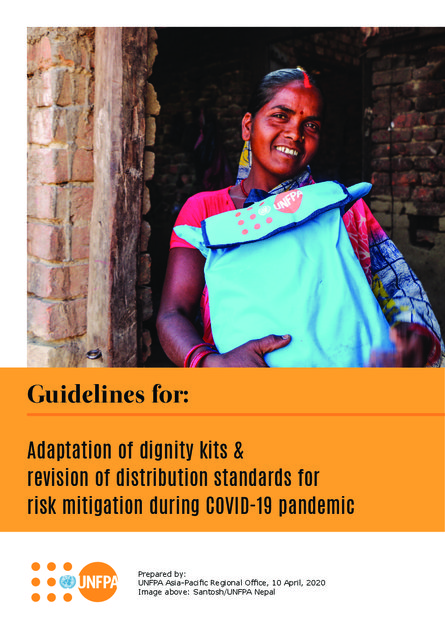
Many countries are taking strict measures to prevent the spread of COVID-19 with lockdowns, curfews, and closure of public spaces and services. As a result of stress and uncertainty caused by these strict measures, women and girls are at even greater risk of violence at a time when their access to services is further reduced. With many people’s livelihoods and incomes significantly affected, together with movement restrictions, basic hygiene and menstruation items are unlikely to be prioritised. Distribution of culturally relevant dignity kits with additional items for the COVID-19 context can be highly valuable in reducing the vulnerability of women and girls to violence and to connect women and girls to GBV related information and response services, especially as these may have changed since the COVID-19 outbreak. Provision of much needed supplies in dignity kits will enable women and girls to use their limited resources to purchase other important items needed in an emergency, such as food, and facilitate their mobility to access services.1 Particularly in the context where vulnerable populations, including women and girls, are placed in imposed collective settlements aimed at reducing transmission of COVID-19, provision of dignity kits with essential hygiene items along with information on GBV services becomes extremely crucial and lifesaving.